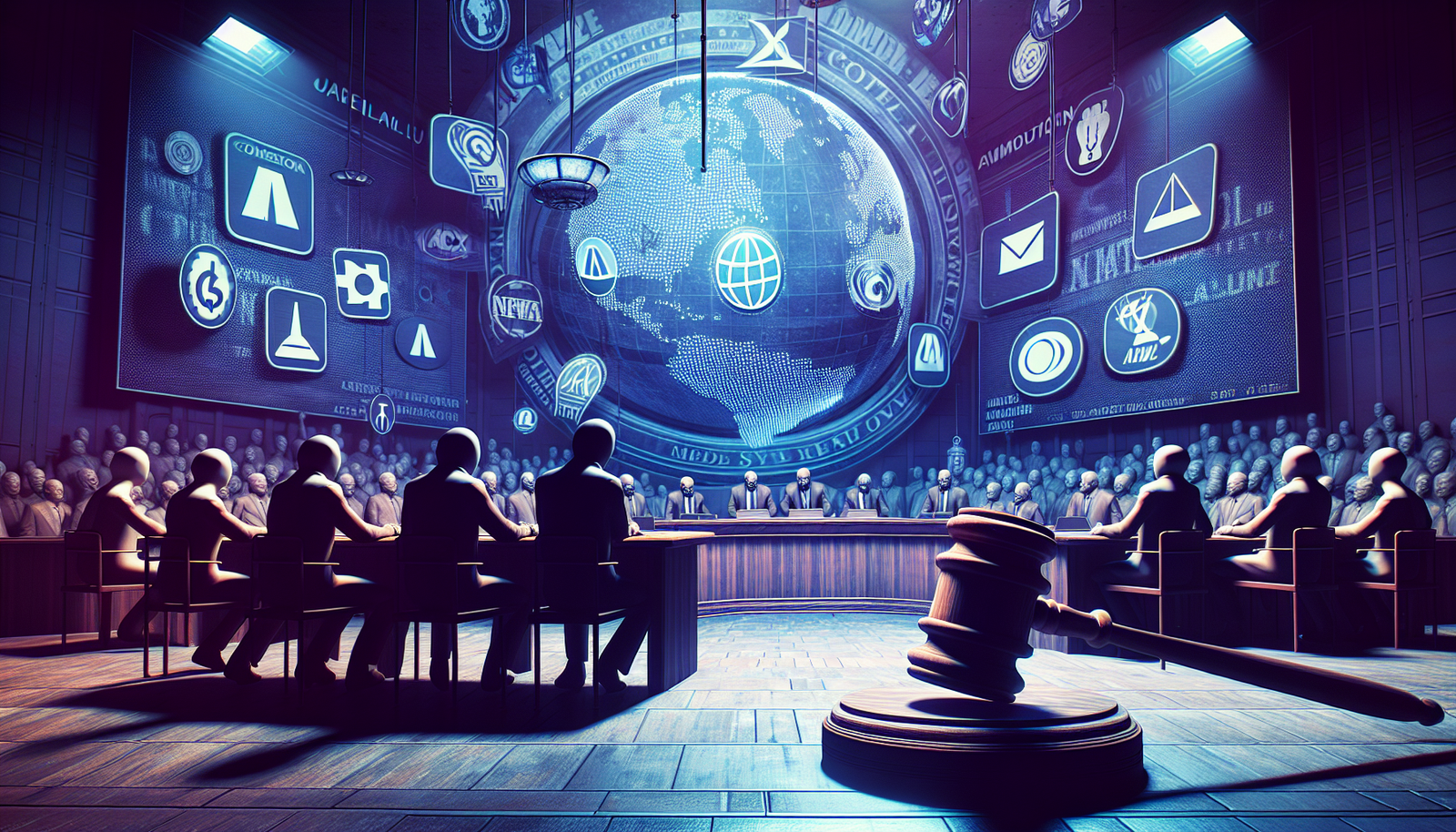The largest Canadian media are joining forces to file a lawsuit against OpenAI, thereby raising vital questions about intellectual property. An alliance formed by giants like CBC/Radio-Canada and The Globe and Mail accuses OpenAI of using their content for its artificial intelligence models without authorization. The complaint, filed recently, is of considerable importance, representing a decisive turning point in the complex relationship between media and emerging technologies.
The protection of copyright becomes a major issue as these media companies demand substantial compensation for the inappropriate use of their works. The struggle between technological innovation and respect for copyright intensifies, plunging the media sector into a fight for its survival.
The Accusations of Canadian Media
The largest Canadian media have initiated lawsuits against OpenAI, claiming that the company violates copyright laws. Among the plaintiffs are renowned institutions such as The Globe and Mail, The Canadian Press, CBC/Radio-Canada, Torstar, and Postmedia. These organizations assert that OpenAI is using their content for commercial purposes, without any form of compensation.
The Scope of the Complaint
The complaint filed on November 29, 2023, reveals that OpenAI has allegedly indiscriminately appropriated significant works without respecting copyright protections. The process, referred to as “data scraping”, involves extracting vast datasets available online, including news articles.
The Allegations of Financial Harm
The plaintiffs argue that OpenAI has consciously profited from their intellectual property. The company is accused of being aware of the value of this content from the early stages of extraction. This non-consensual cooperation severely impacts the revenues of national media, which struggle to maintain themselves in a competitive digital environment.
Claims for Damages
The Canadian media are seeking damages, estimating that OpenAI’s enrichment is substantial and unjust. The complaint also requests a permanent injunction against the company’s illegal activities. This statement reflects the media’s commitment to protecting their copyrights and their content.
The International Situation
This action is part of a broader context of lawsuits against OpenAI worldwide. Iconic newspapers such as The New York Times and The Wall Street Journal have recently initiated similar actions, illustrating a collective movement opposing the unauthorized use of their work. The fight for intellectual property has become a priority for many players in the media industry.
Current Legal Proceedings
As lawsuits intensify, OpenAI’s defense continues to claim that many of the accusations are not based on solid evidence. Recently, a judge dismissed a lawsuit filed by independent publishers, highlighting the lack of evidence to demonstrate that ChatGPT had been trained on their content.
Implications for the Media Industry
The legal conflicts surrounding OpenAI’s use of data are raising growing concerns within the media industry. Press companies fear that similar practices will recur and lead to a deterioration in the quality of journalistic content. The increasing tension between technology companies and traditional media is prompting regulatory authorities to give deeper thought to the legislative framework regarding copyright.
An Outlook on the Future
The current situation could lead to a profound reevaluation of the relationships between artificial intelligence techniques and copyright laws. The implications of these lawsuits resonate beyond Canadian borders, affecting globally how content is protected in the digital age. Media professionals are questioning how these events might reshape the future of media on an international scale.
Frequently Asked Questions
What are the main reasons Canadian media are suing OpenAI?
Canadian media, including The Canadian Press, Torstar, Globe and Mail, Postmedia, and CBC/Radio-Canada, accuse OpenAI of using their content without authorization and violating copyright laws, thereby generating significant commercial profits from this content.
What type of damages are Canadian media seeking in this lawsuit against OpenAI?
They are seeking damages for the misappropriation of their content and are also seeking a permanent injunction to prevent OpenAI from continuing its illegal activities.
What is the ‘data scraping’ process involved in this case?
The ‘data scraping’ process involves automated software collecting large amounts of publicly available data online, including content from press tools, often without consent, to train artificial intelligence models like those of OpenAI.
How has OpenAI responded to the media’s copyright infringement accusations?
OpenAI has attempted to defend itself by arguing that they are not responsible for the claims made by copyright advocates, but the specific details of their defense in this case have not yet been clearly established.
Is this lawsuit by Canadian media against OpenAI isolated?
No, other media outlets worldwide, including American giants like The New York Times and The Wall Street Journal, have also initiated similar lawsuits against OpenAI and other artificial intelligence companies for comparable reasons.
What impact could this trial have on the artificial intelligence and media industries?
The outcomes of this trial could establish new legal precedents regarding the use of protected content to train artificial intelligence models, thereby affecting practices in the media and technology industries in the future.
Why do some media forget to protect their content before it is collected by OpenAI?
Copyright regulation in the digital environment is often complex and variable, which may lead some media outlets not to implement adequate protections for their content accessible online.
What ethical implications does this lawsuit raise for the future of artificial intelligence?
This case raises ethical questions about the responsibility of AI companies in using protected data, as well as the necessity to find a balance between technological progress and respect for copyright.
When was this lawsuit filed in court?
The complaint was filed on November 29, 2023, an important legal act highlighting the growing tension between traditional media and new AI technologies.






